8 Tips to Keep Your Digital Privacy Safe Against Online Threats
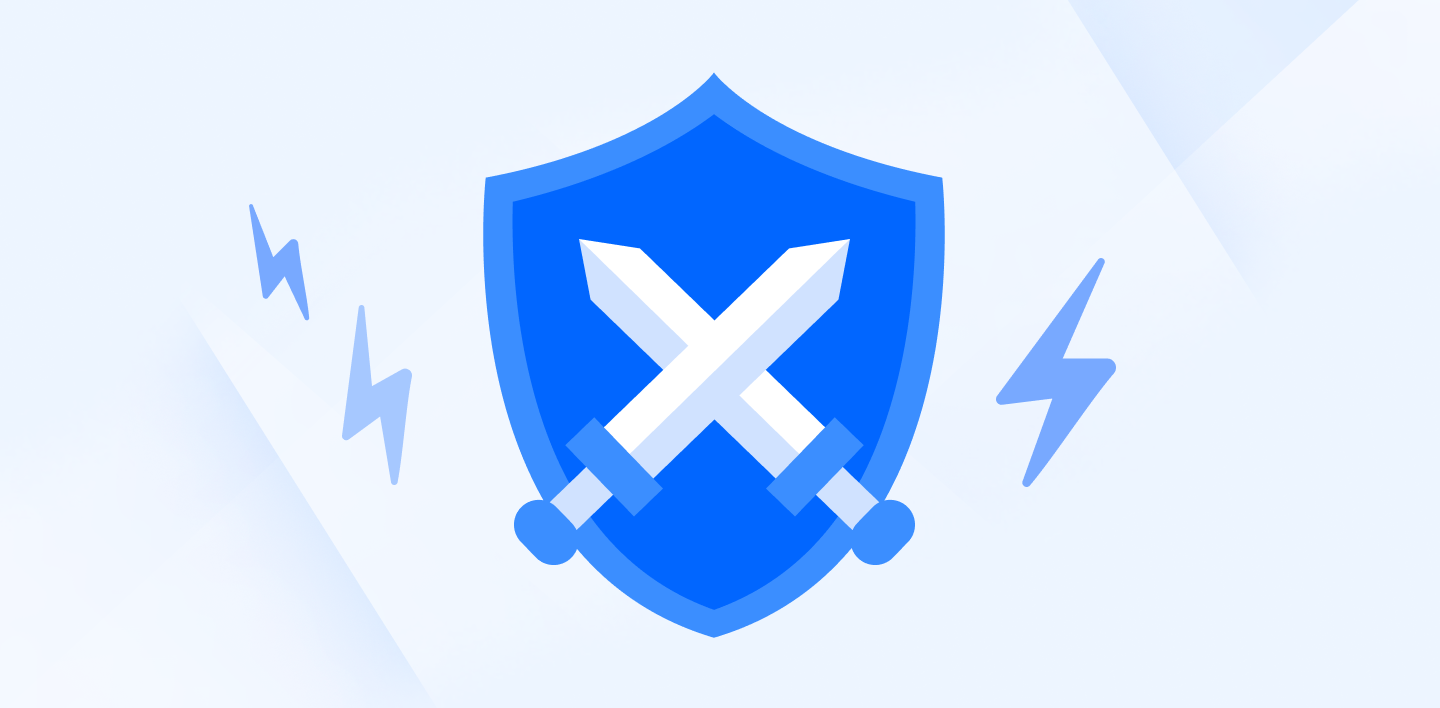
The Internet has become an integral part of everyday life. Every day, we exchange information, make purchases, and communicate with friends and colleagues via messages, email, and phone calls.
However, we often do not think about how much information we provide about ourselves online when we make publications on social networks or simply search for a necessary video clip.
According to Statista, as of April 2023, there were 5.18 billion Internet users worldwide. Out of this global number, 4.8 billion were users of social media platforms.
Privacy in the digital age is one of the most pressing concerns. The advancements in technology that allow for tracking phone calls, the growth of e-commerce tools, and the rise of social media all make it imperative to safeguard personal information.
Your data can be used to provide personalized content and targeted advertising for illegal purposes such as identity theft, fraud, and cyberterrorism or espionage.
By the end of this article, you will discover why digital privacy is important and how to protect it to ensure you stay safe online.
What Is Digital Privacy, and Why Is It important?
Digital privacy is a concept that encompasses various aspects of ensuring users' cybersecurity online. It's tied to every individual's right to keep their data private and safeguard themselves from unwarranted monitoring and surveillance of their online activities.
Since the inception of the Internet in the mid-20th century, data privacy issues have become even more crucial. Initially, it was largely linked to the physical world, but with the advent of the Global Network, it expanded into the digital realm.
Today, digital privacy covers personal data protection, cybersecurity concerns, social media privacy, and the right to online anonymity. Online privacy is also closely connected to the right to choose. Users should be able to decide what information about themselves they want to disclose and to whom.
Control over one's data and customizing the level of access to it is a fundamental right of every individual. However, maintaining complete confidentiality is becoming increasingly challenging in the modern world.
Many online services collect user information and use data mining to enhance advertising, personalize content, and conduct analytics. This creates a conflict between the online audience's desire to protect personal data and the user's consent for its utilization by digital services.
Note that states also play an important role in ensuring digital security through data privacy laws that protect users' rights and restrict companies' actions concerning personal information.
Despite that, every action cannot be categorized as legal or illegal. For example, an advertiser monitoring the online habits of Internet users to target potential customers is not illegal.
But digital ethics determines to what extent you should monitor online activity. Real user monitoring tracks real-time user interactions on apps and websites for insights into performance, raising privacy concerns without proper consent.
For example, company network administrators must monitor server traffic, including tracking employees' Internet use. Ethics thus draws a line between ensuring network security and violating user privacy.
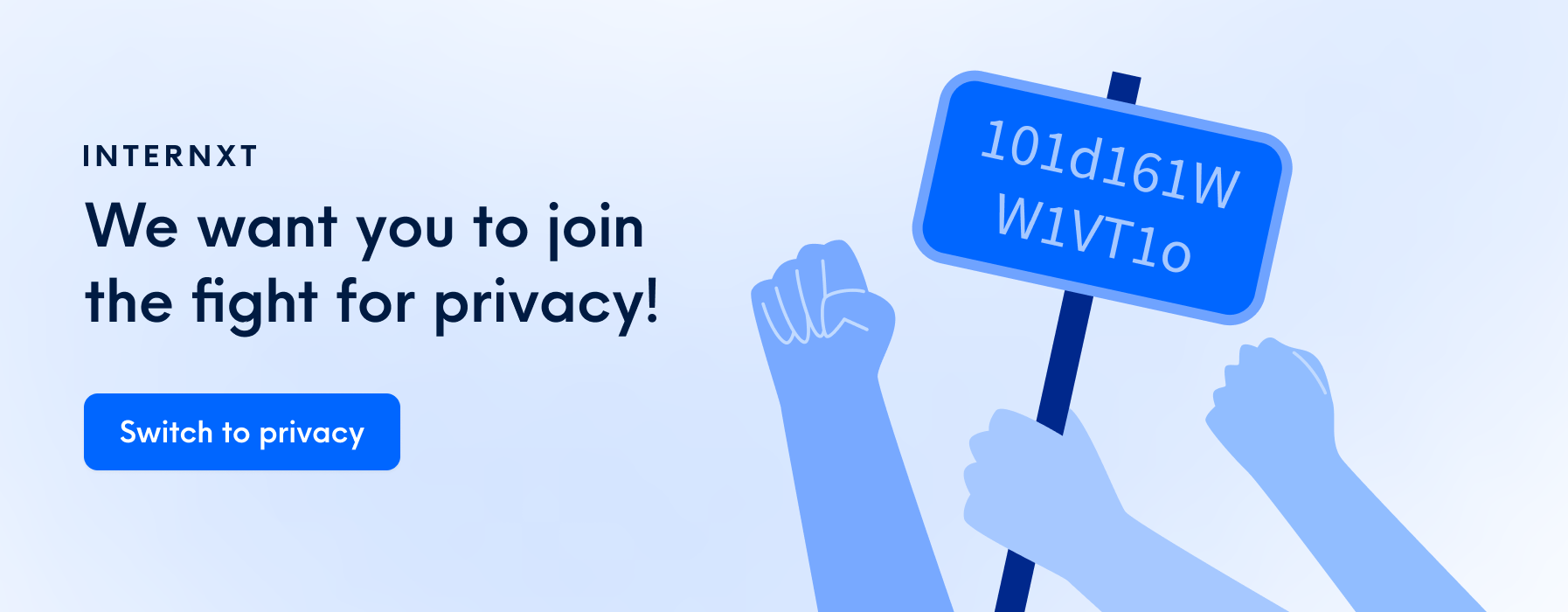
What Are The Threats to Confidential Information?
Digital threats refer to potential or actual actions targeting informational resources that lead to unauthorized access to protected data. Understanding digital privacy generally involves discussing and addressing online privacy threats that businesses and consumers face.
The most common threats include:
Data Breaches
These involve the unauthorized transmission of confidential information (materials crucial to various companies or governments, personal citizen data), which can be intentional or accidental.
The data stored on a computer holds significant value. Therefore, unauthorized access to personal computer data can result in negative consequences. With the ability to access logins, passwords, bank cards, and accounts, malicious actors can steal funds, confidential information, and even sensitive company data.
Recent statistics show that most data breaches occurred in the U.S. That year, 212.4 million users were impacted (compared to 174.4 million in 2020). Iran followed in second place with 156.1 million compromised users in 2021 (a notable increase from 1.4 million in 2020).
The loss of valuable data can result from improperly implementing security policies. Ignoring data protection and storage rules leads to leaks and distribution in public spaces like the Internet.
Call Tracking and Data Collection
Companies often track and collect consumer data, behaviors, interests, and habits to optimize ad campaigns and boost sales. Digital profiling is widely used today, especially in the IT sector.
However, this practice has eroded consumer trust. A McKinsey survey revealed low overall consumer trust, varying by industry. Healthcare and financial sectors garnered the most trust, which is interesting considering the number of breaches in the healthcare industry. Consumer goods, media, and entertainment companies garnered the least.
Around half of the surveyed consumers from a group of 1,000 said they would be more likely to trust a business that only asks for relevant information about their services/products. That suggests responsible data security practices.
Phishing
This internet scam aims to acquire user identification data. This encompasses stealing passwords, credit/debit card numbers, bank accounts, and other confidential information.
According to the APWG report phishing attacks reached a record high in 2022 – over 4.7 million attacks.
Phishing attacks involve fake sites that mimic popular companies' web pages, such as social media sites, online stores, streaming services, etc. Hackers rely on users not spotting the counterfeits and providing personal data like card details, log in details, passwords, or phone numbers. If users fall for it, scammers get their data.
Unwanted Content
It implies not only information materials (images, videos, audio, texts) containing violence, pornography, drug propaganda, and gambling but also various malicious programs that aim to access the owner's computer information. Prohibited by law, websites also fall under unwanted content.
People of all ages use the Internet in the modern world. Regardless of age, almost everyone has an Instagram or Facebook account, searches for answers on search engines, watches videos, reads or downloads books, or listens to music.
Given this, the likelihood of encountering unwanted content online is high. To ensure you avoid this kind of content, only download, buy, or subscribe to content from reputable providers.
Unauthorized Access
This threat is best understood as gaining the capability to process data stored on various media and storage devices through unauthorized alteration or fabrication of corresponding rights and permissions.
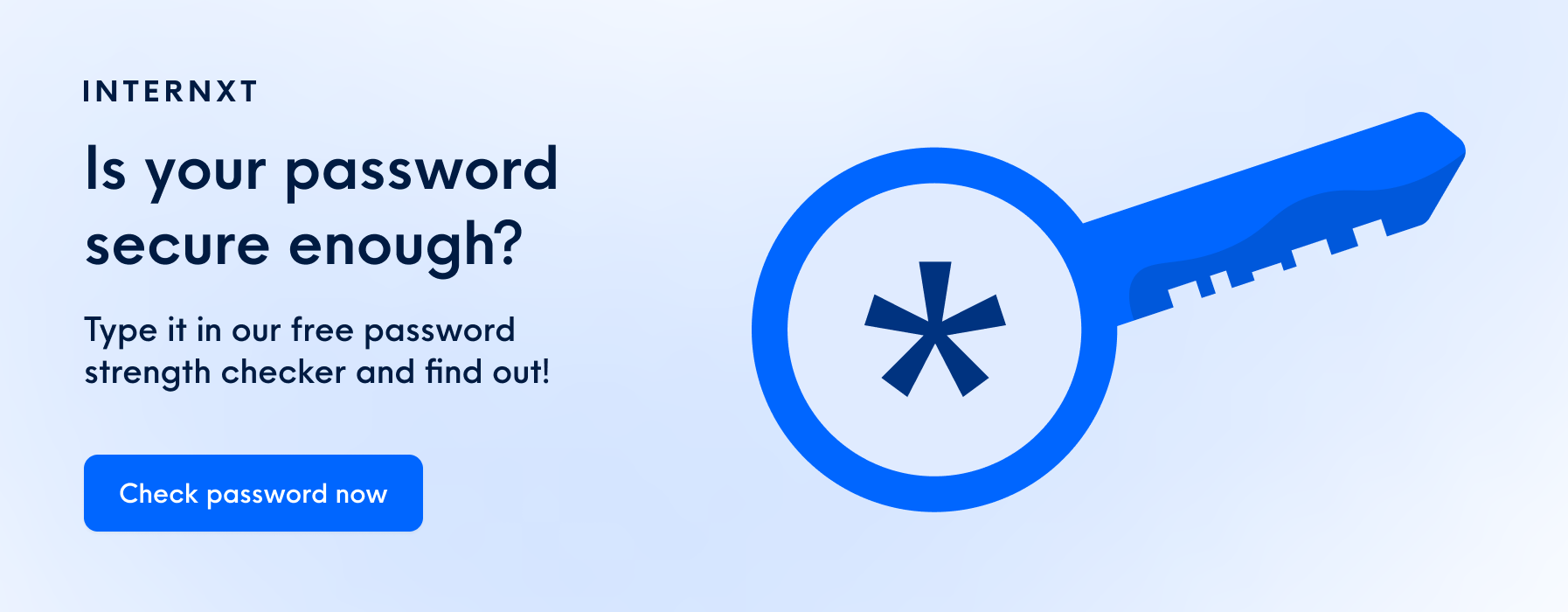
Such an occurrence takes place when certain information is meant solely for a specific group, but the existing restriction is violated. Unauthorized access is carried out through errors made by controlling structures or computer security systems, as well as by substituting authentication documents or unlawfully seizing information about another individual to whom such access has been granted.
Data Loss
This is the damage or loss of information due to various factors, accidental or intentional actions. Data loss can occur while working with data and storing information on a computer, server, or RAID array.
Data loss can occur due to information integrity violation (software failure) or equipment malfunction.
Information integrity violation means data corruption, which makes it impossible to read/copy information without performing a recovery procedure. In this case, there is a risk of losing all or part of the data and a threat to the performance of the entire computer system or hard drives.
Many of these threats arise from companies collecting user data without proper consent or safeguards. This highlights the importance of data privacy regulations like the EU's General Data Protection Regulation (GDPR).
The GDPR sets guidelines for lawfully gathering and handling personal data. Some key requirements include transparency, purpose limitation, data minimization, and security.
Companies need robust data governance frameworks to comply with regulations like GDPR. Resources like GDPR compliance software can help businesses handle data ethically and securely. With the various emerging threats, regulatory compliance is crucial for earning user trust in the digital age.
How To Ensure Data Protection Online
It used to be quite easy to store personal data. You could simply choose not to share it with anyone. However, this is no longer enough in our digital age. Our browsers, PC programs, and mobile devices collect the information we'd rather keep private.
This is why taking charge of your online privacy is crucial. So, how can you do that?
Use Encryption in Messengers
We often chat using social media and messaging apps, discussing personal and work-related matters. We share things like emails, phone numbers, and more. But here's the catch: it's only sometimes secure. Hackers can easily snatch the information we send over messengers. Fortunately, there's a solution.
Encryption is a powerful way to protect confidential data. It's worth using for data protection and during personal text conversations. You must get an encrypted messager app like Signal, Viber, or Telegram. And if a messenger doesn't offer data encryption and, as a result, no privacy, it's better to steer clear of it.
Review Privacy Settings of Apps and Devices
The settings in your apps and devices help you control the information they can access and how they can use it. The issue is that many service providers aim to obtain as many permissions as possible.
A prime example is Facebook, which frequently changes its settings and interface. Sometimes, it switches permissions to "default" without your knowledge. Therefore, remember to check the privacy settings in your apps and devices:
- Ensure you're not sharing information with unintended audiences
- Turn off geolocation data tracking if it is not necessary for certain services
- Block access to the camera and microphone when not in use
Avoid Weak Passwords
One of the simplest steps you can take to protect your online data is to use strong passwords. Have a distinct password for each site.
Creating a strong password is easy. A password composed solely of letters or numbers is much easier to crack than one with special characters. Make your passwords as complex as possible. After all, using a different password everywhere significantly decreases the chances of a hacker breaking it and gaining access to all your services.
Another option to sign into your accounts that platforms offer is a single-use login link that avoids using passwords when signing in.
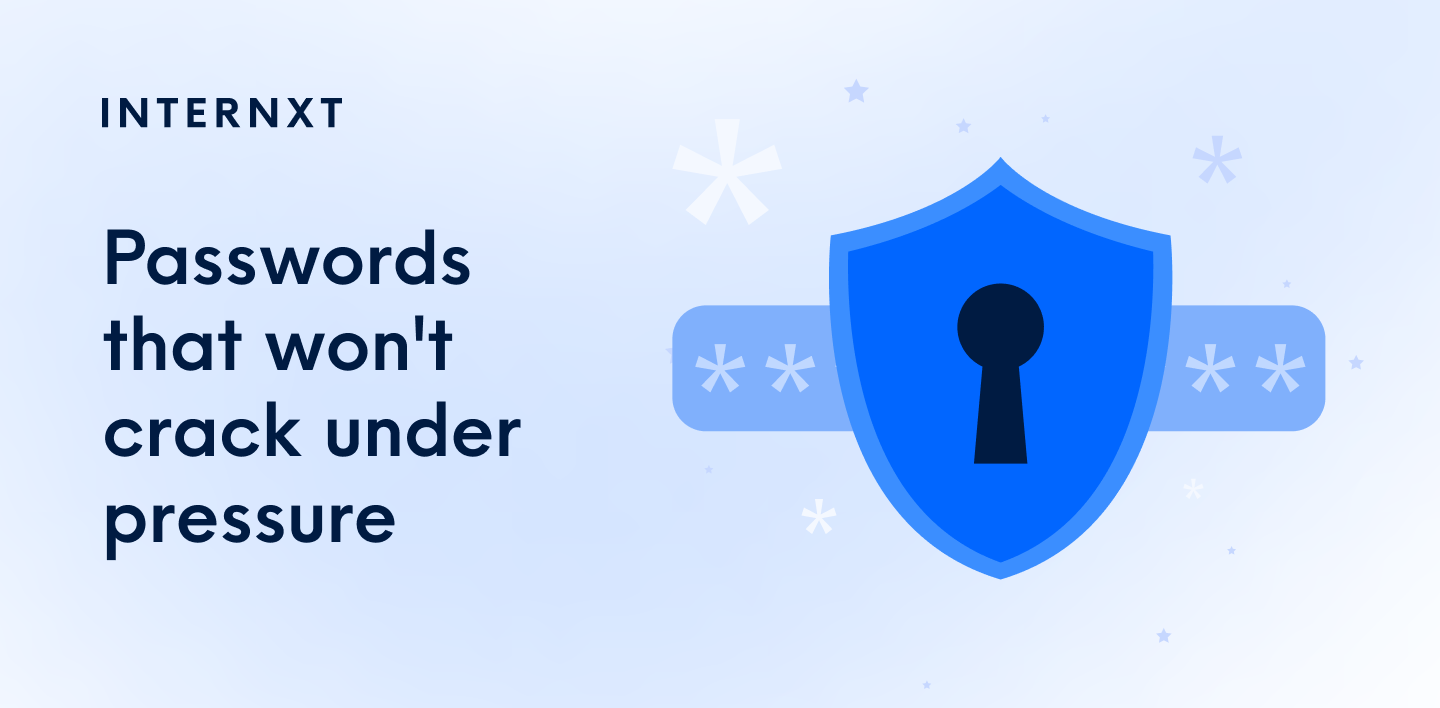
To manage multiple passwords effectively, use specialized password managers that have a solid reputation as a secure means of storing your passwords.
Delete Unnecessary Apps
Apps are a major reason people love using smartphones but they're also a source of confidential information leaks.
Removing unused apps can reduce the risk of data leaks and simplify privacy settings management for essential applications.
Implement Two-Factor Authentication (2FA)
There's no denying that a single password isn't sufficient to protect against hacking or cyberattacks. Nearly all reputable services for both users and clients have adopted two-factor authentication (2FA).
This method offers protection for personal information beyond just a password, requiring, for instance, a special code sent via SMS to your phone during new logins. With two-factor or biometric authentication, stealing your data becomes more difficult.
Thanks to 2FA, when scammers attempt to access your data, they'll encounter an insurmountable obstacle – your phone that's always with you, almost as if it became an extension of your arm. This method is particularly effective for email, social, or work accounts.
Use a Secure HTTPS Protocol
It is recommended to ensure that the websites you visit use a secure HTTPS protocol. This is a special extension of the HTTP protocol for SSL encryption and provides secure data sharing between the site and you.
In other words, the site has undergone a security check by obtaining a certificate with all the information about it and its owner.
Of course, hackers don't burden themselves with obtaining such a certificate for their site, making them dangerous for us. You need to be extremely cautious when opening specific websites without the HTTPS protocol. They're hazardous for your device and can also steal your data.
But constantly checking for the presence of this protocol isn't practical, right? Well, there's a solution. Add a special plugin called HTTPS Everywhere to your browser. This plugin will consistently verify HTTPS connections and ensure encrypted connections on every site. This extension is available for Chrome, Firefox, Opera for PC, and Android.
Install VPN
The VPN technology is based on creating a virtual tunnel that protects the data passing through it. When using a VPN service, anyone trying to "peek" at what we're doing is only informed that a transmission is occurring and ongoing. However, it's impossible to see what's inside this virtual tunnel.
Most of you are familiar with the capabilities of VPN services. But they not only offer access to blocked websites, social networks, and resources. They also help safeguard your data.
A VPN connection makes the transmitted data nearly impossible to intercept within a local network and is a valuable tool when using public Wi-Fi.
Block Third-Party Internet Cookies
Cookies are files used in browsers to load pages on sites you've previously visited quickly. However, this also involves collecting and exploiting data for advertising purposes.
When you visit websites, you leave a digital footprint. They remember your preferences and browsing style, then "serve up" advertising the system thinks you'll like.
You can block cookies in your browser to prevent every online step from being tracked, or, better yet, switch to a more private web browser that disables cookies by default.
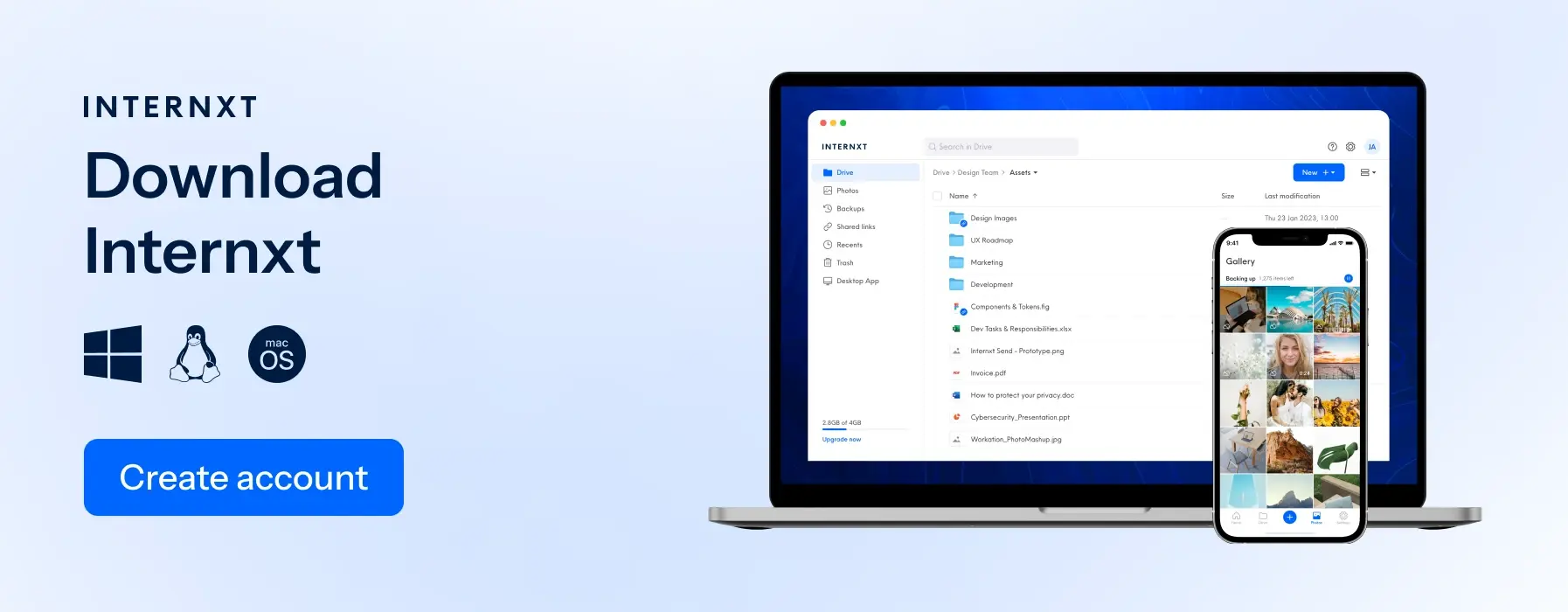
How to stay up to date with digital privacy methods
The rapid pace of technological progress has provided users with more ways to communicate, interact, and connect. Yet, this has also opened up more data surveillance and tracking methods.
As many companies continue to track phone calls, engage in user profiling to boost sales, and hackers gather data for fraud, safeguarding confidential information remains in our hands.
While no foolproof method guarantees 100% protection against data aggregation, implementing just a few of the recommendations we've provided above will significantly enhance your privacy level.
And remember, you have the right to privacy on the internet, and by switching to a company like Internxt, protecting your privacy is a lot easier.

